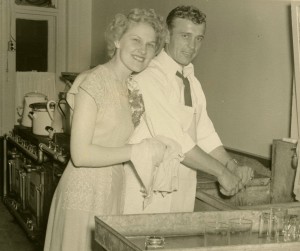 A lovely thing about Christmas is that it’s compulsory, like a thunderstorm, and we all go through it together
A lovely thing about Christmas is that it’s compulsory, like a thunderstorm, and we all go through it together
A Christmas Curmudgeon
Driving home yesterday, I spilled my large cup of Starbucks all over my lap causing me to swerve slightly, it seemed like inches, into the lane of a grouchy driver to my right: an eighty year old guy with a face like a overdone waffle wearing thick glasses who rolled down his window and let out a shrill scream, “Merry Christmas to you too, buddy!!” Wow, I guess he had a tough day at the Mall! I had a good laugh telling my friends about it later.
Mark Twain, who must have crashed into a few horse-drawn buggies in a dirt Yuletide parking lot, once wrote:
“The approach of Christmas brings harassment and dread to many excellent people. They have to buy a cart-load of presents, and they never know what to buy to hit the various tastes; they put in three weeks of hard and anxious work, and when Christmas morning comes they are so dissatisfied with the result, and so disappointed that they want to sit down and cry. Then they give thanks that Christmas comes but once a year.”
The Holidays are tough for many people.
While Christmas and the New Year come but once a year, it’s really a month long reverie of parties, music, eating and spending time with friends and family. During this stretch of time, Christmas isn’t so great for lots of people and there are good reasons for it.
Despondency is common during the holidays for many. The most famous example of this is none other than George Bailey in the timeless classic, It’s a Wonderful Life. I believe so many people relate to George because he’s the archetype of a good man who is befallen by undeserved tragedy – the prospect of financial ruin – and learns through an angel what his life would have been for others if he’d never been born. George develops a new found appreciation for what’s really important, the love of family and friends. He leaves his guardian angel, returns home only to find his family heartily welcoming his return and, because George has helped so many in his lifetime, they come through by helping him with enough money to solve his financial crisis.
Maybe most of us aren’t on a precipice of financial ruin, but there are many parties, celebrations and gatherings that require the spending for food and drink. This creates the need to put the hands deep in the pocket, both for gifts and to pay for the restaurants and bars. The temptations such as food, the cocktails, purchases and gifts is high and leads many people to feel stress for the consequences of their actions (gain more weight, headache, depression, overdrafts). These effects remain after the end of the holidays and cause even more stress and depression.
Everyone who struggles in today’s economy is George Bailey; stressed and wondering if they can support their families and provide a happy Christmas. This can take a toll on many.
 They may be lonely, whether surrounded by loved ones or not. For those struggling with depression or just profound loneliness, Christmas can be so tough. They’re expected by others to be Merry and when they’re not, they are prodded to “Cheer up.” That’s one of the confounding things for those who have never experienced depression: that you could possibly feel so down when surrounded by circumstances that appear, to those with no reference point to understand, so great. But, there it is. Even when not told by others to snap out of their funk, folks who are lonely and depressed feel this way because the holidays trigger some memory of loss, of loved ones not there that should be there or their inability to pull themselves out of a down mood.
They may be lonely, whether surrounded by loved ones or not. For those struggling with depression or just profound loneliness, Christmas can be so tough. They’re expected by others to be Merry and when they’re not, they are prodded to “Cheer up.” That’s one of the confounding things for those who have never experienced depression: that you could possibly feel so down when surrounded by circumstances that appear, to those with no reference point to understand, so great. But, there it is. Even when not told by others to snap out of their funk, folks who are lonely and depressed feel this way because the holidays trigger some memory of loss, of loved ones not there that should be there or their inability to pull themselves out of a down mood.
There can also be family turmoil during the holidays. Usually people want to gather the whole family together for Christmas, but everyone has plans and sometimes there is conflict because people prefer to spend the holidays in their own home. There is also the possibility that people have high expectations these days from other people. People might expect perfect conditions with expensive gifts and positive response by all. This is not usually the case and this increases the chances to feel disappointed and the risk of sadness and depression are increased.
People are too pooped to party. One of the main reasons that the holidays bring with them intense stress is that suddenly there are many requirements and people have to do many things in a short period of time. Even when the activities are basically pleasant and enjoyable, they are a change from the daily routine that people are used to, and this situation is pushing the person to do more things than it can normally do. Shopping, the need for finding gifts, participation in various social events and obligations, the preparation of Christmas dishes and other sweets all create stress and fatigue.
The Spiritual Dimension of Christmas
While there are a lot of things that can bring us down this time a year, we all need to remember that, just like an elevator, there are plenty of things to bring us up: small kindnesses that fall on us like snow throughout a day: children with wool caps on running across the street with mittens while a volunteer crossing guard swooshes them along, someone says “Thanks” or “You’re welcome” and really meaning it, a Christmas song plays and takes you back to a sweet childhood memory of the holidays or you just plain old feel the ineffaceable lift of your spirits being part of the a time during the year where there’s some sort of fellowship, a sense that we all are part of God’s family, and wish each other well.
Because I am Catholic (a very liberal one, mind you), the holidays offer another gift to me – a sense of Joy. I have always found the month leading up to Christmas enjoyable, what my church calls Advent, in some sense a salve on the short days and chapped skin from too much cold wind that hurdle through Buffalo salt covered streets.
I am never preachy about my faith (I don’t care for it when others do so about theirs’) because I feel there are many paths to God. But I do feel it’s important to seep yourself in whatever your spiritual tradition leads you to be a better, more kind and decent human being.
In my faith, Christmas is a month of anticipation culminating in the birth of Jesus; the seminal event in human history where God intervenes in human time to send his only Son to save a broken and lost humanity from itself. This belief is expressed so beautifully in the Old Testament by the prophet Isaiah who writes:
 “The people walking in darkness have seen a great light; on those living in the land of the shadow of death a light has dawned. For to us a child is born, to us a son is given, and the government will be on his shoulders. And he will be called Wonderful Counselor Mighty God, Everlasting Father, and Prince of Peace.”
“The people walking in darkness have seen a great light; on those living in the land of the shadow of death a light has dawned. For to us a child is born, to us a son is given, and the government will be on his shoulders. And he will be called Wonderful Counselor Mighty God, Everlasting Father, and Prince of Peace.”
My parish priest, captured some of the mysterious dimension of Jesus’ birth when he wrote:
“Contemplate, with me, the mystery that is Christmas. Like all mysteries, it bears innumerable levels of meaning and of presence. The core truth is that God, in person of Jesus, takes a specific place, Mary’s womb, and time (c. 4 B.C.E.), and becomes one with humanity. It stretches the imagination to think that God would so choose to be identified with us that a transcendent/immanent communion issues forth through a simple woman, Mary, as “the Christ,” the anointed one. Nothing in the story of human creation before this event/birth, a recorded history of c. 6,000 years and an unrecorded history of probably 500,000 years, prepares us for this wonder.”
Thousands of years have passed since Isaiah’s psalm, we all still walk in darkness and all are in need of a “great light” to illuminate our steps as we walk through life. There’s a yearning in all beings to be guided by something or Someone bigger than their limited self.
For me, the birth of Jesus, the Prince of Peace, brings a profound sense of hope into the world; hope that we all can grow as a people and know what it is like to feel the light of God’s love.
Coping with the Holidays
Be Generous and Mindful of those less fortunate to you. It is funny how years later particular events stick in your mind. One Christmas Season, a homeless man well-known to hang out in front of a coffee shop I used to go to, came inside. He would do this on occasion and ask for money in tattered clothes and mangled hair. His name was Wesley.
 I later learned that he was a Vietnam veteran who suffered from PTSD. I had given him change on occasion, but didn’t feel like it that morning. He asked, “Do you have any money?” I said, somewhat brusquely, “No, I do not.” He then paused for a moment, a look of kind concern in his eyes, and said softly, “Do you need some.” This man with so little offered me what little he had and in doing so taught me the true heart of Christmas.
I later learned that he was a Vietnam veteran who suffered from PTSD. I had given him change on occasion, but didn’t feel like it that morning. He asked, “Do you have any money?” I said, somewhat brusquely, “No, I do not.” He then paused for a moment, a look of kind concern in his eyes, and said softly, “Do you need some.” This man with so little offered me what little he had and in doing so taught me the true heart of Christmas.
Remember the holiday season does not banish reasons for feeling sad or lonely. There is room for these feelings to be present, even if the person chooses not to express them. But like all feelings, they pass. It might just be that the holidays, with all its high expectations of happiness, intensify these feelings. Just hang in there.
Have a little faith in the goodness of life. We can all get weary from the drubbing we get at Christmas in our too materialistic, too focused on stuff society. But let that not dampen your spirit too much because beneath it all, there’s simply too much goodness in this world to appreciate all around you.
The humorist Garrison Keillor wrote:
“To know and to serve God, of course, is why we’re here, a clear truth, that, like the nose on your face, is near at hand and easily discernible but can make you dizzy if you try to focus on it hard. But a little faith will see you through. What else will do except faith in such a cynical, corrupt time? When the country goes temporarily to the dogs, cats must learn to be circumspect, walk on fences, sleep in trees, and have faith that all this woofing is not the last word. What is the last word, then? Gentleness is everywhere in daily life, a sign that faith rules through ordinary things: through cooking and small talk, through storytelling, making love, fishing, tending animals and sweet corn and flowers, through sports, music and books, raising kids — all the places where the gravy soaks in and grace shines through. Even in a time of elephantine vanity and greed, one never has to look far to see the campfires of gentle people.”
God bless you all and have a Merry Christmas.






















